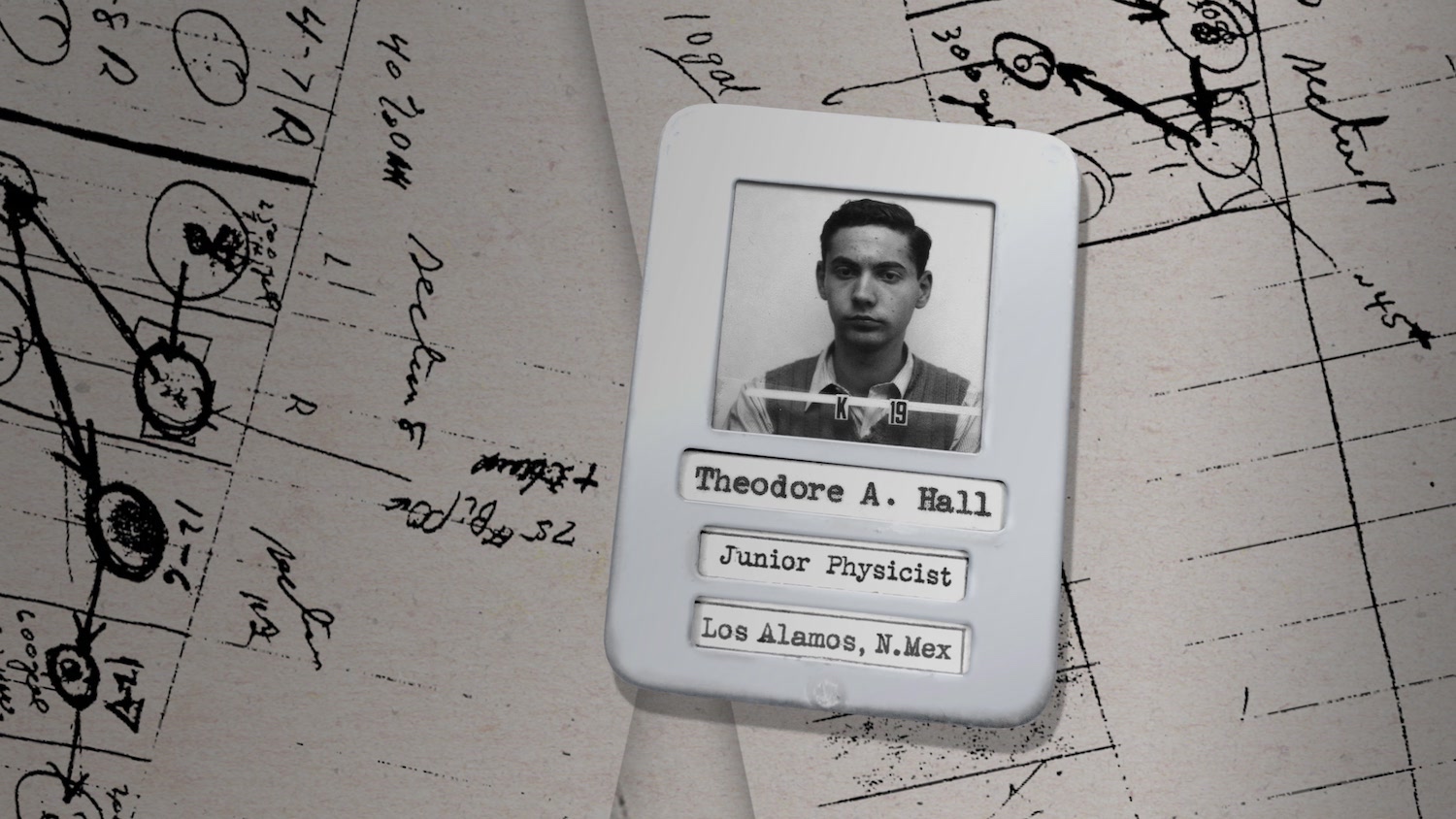A COMPASSIONATE SPY

(Check out Chris Reed’s A Compassionate Spy movie review! The film is available now on VOD via Magnolia Pictures. Seen it? Join the conversation with HtN on our Letterboxd Page.)
The new documentary A Compassionate Spy, from filmmaker Steve James (Abacus: Small Enough to Jail), comes out at a potentially propitious time for its subject matter, just two weeks after the release of Christopher Nolan’s Oppenheimer. That’s because the central character of the new film, the late Ted Hall, was a young scientist brought on to the Manhattan Project to help build the world’s first nuclear bomb. Unlike J. Robert Oppenheimer, however, who came under suspicion because of his previous communist sympathies, Hall was the one who actually spied for the Soviet Union.
Though James clearly sides with Hall over the reasons for his espionage—he and others believed that no one country should be the sole proprietor of weapons of mass destruction—it proves at times somewhat difficult to completely sympathize with the man, given how much his actions contributed to others’ suffering. All one needs do is remember Julius and Ethel Rosenberg, whose own treasonous acts were of a more minor nature, and realize that the reason they were so avidly pursued was because someone, somewhere, knew that a spy had given up our nuclear secrets. And that was Ted Hall.
Still, this tension only makes the film more fascinating. However one feels about the morality of both splitting the atom and/or passing national secrets to a foreign power, the facts of the case more than hold our attention. We learn the how and the why of Hall’s spying, as well as the many years he and his wife, Joan (heavily featured here, since Ted died in 1999), spent hiding the truth and raising their family. Joan had nothing to do with the Soviets, but was a more-than-willing accessory after the fact. Their past life is told through extensive reenactments, cut alongside present-day interviews with Joan and archival interviews with Ted.
Certainly, Hall was not alone in believing that the United States should not be trusted as the lone nuclear superpower. Other, more senior scientists (as per Oppenheimer), like Niels Bohr, felt that more shared knowledge equaled better alliances and greater global safety. Given that the USA is so far the only nation to use a nuclear bomb on another, it’s not hard to understand Hall’s logic. Then again, the Cold War and attendant arms race did not exactly feel safe for anyone.
James is careful to lay out the details as objectively as possible, though by the end he and Joan have more than gently crossed over into near-hagiography. There are many other experts on the history who also lend their thoughts, rounding out the lovefest with needed context. By the end, despite the occasional descents into defensive self-righteousness, the documentary lives up to its title, displaying compassion all around for the victims of our nuclear age and those who have worked hard to stop there being more such victims. It’s a complicated narrative, as it should be.
– Christopher Llewellyn Reed (@ChrisReedFilm)
Magnolia Pictures; Steve James; A Compassionate Spy documentary movie review












Daniel Gottheimer
Stalin was a mad man who killed more people in cold blood than Germany and he signed a treaty with Hitler, participating in the patrician of Poland He only turned on Hitler when the treaty was broken and the Soviet Union was attacked. Admittedly without seeing the film, I suspect that Steve James and others who sympathize with this spy have a distorted view of history.
Christopher Reed
I understand your point, Dan, and I certainly don’t think the Soviet Union was a benign,, peaceful nation (then again, neither are we), but what motivated Ted Hall, it seems, was a belief that no one country should hold the keys to weapons of mass destruction, alone. The world is a safer place, he believed, with counterbalance.